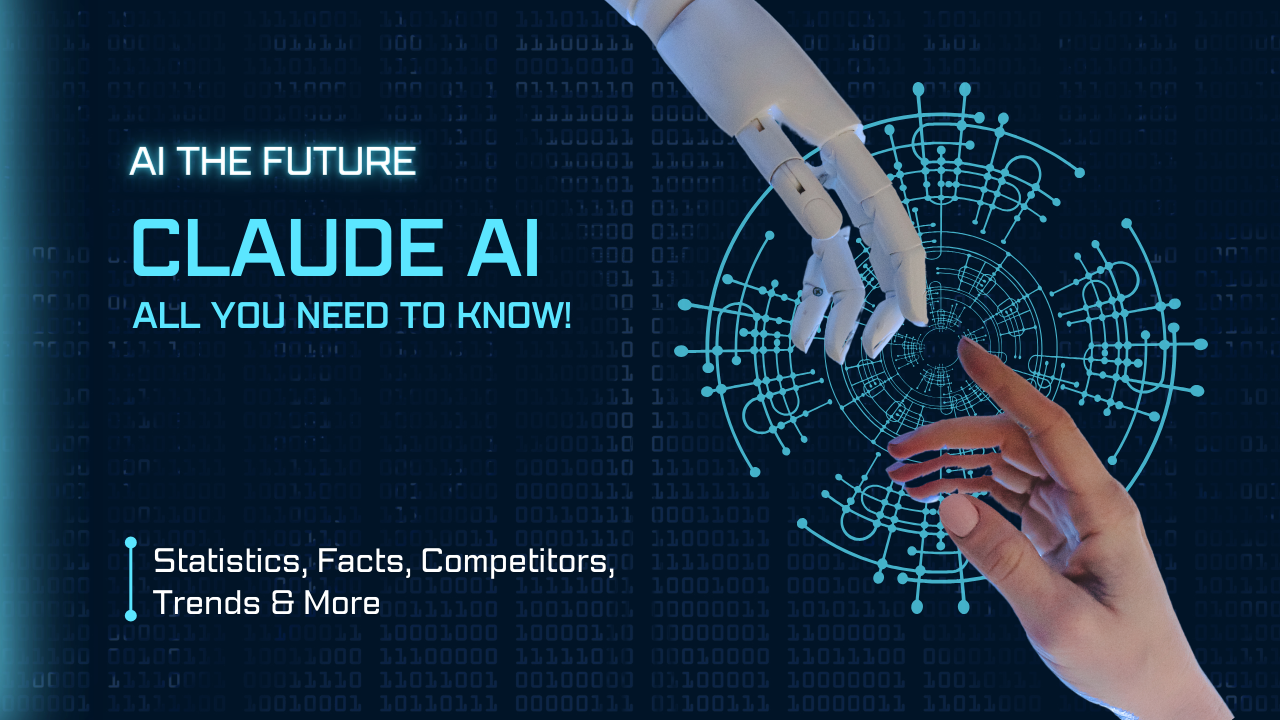10 Best AI Plagiarism Checkers to Detect AI Content

Generative AI has taken over the world of content as well as creative writing by storm. Today, artificial intelligence can produce a 4000-word article in just the blink of an eye. However, this technology is increasingly becoming a concern among the writers’ and publishers’ communities.
Rapidly generated content from AI tools is often misleading and repetitive. Moreover, it divorces authenticity and uniqueness from any written form of content. So, to produce original and reliable content, the usage of AI-powered plagiarism detectors has become essential for any institution or organization. In this article, we will be discussing some of the best tools to detect content generated with ChatGPT.
How Does An AI Detection Software Work?
Content generated by AI writing tools is not necessarily a mere duplication of someone else's work but is a highly sophisticated writing form that requires AI-powered algorithms for detection. Thus, AI generated content for SEO is checked with the help of language models-based AI detectors. These AI detectors check the content for its perplexity and burstiness. The lower the score of these two, the higher are the chances for a content to be AI generated.
Here is how these two parameters can be explained in simple words….
- Perplexity is the measure of the predictability of any text. Human writing is usually highly unpredictable and thus has a high perplexity score. AI generated content on the other hand is less likely to be random, hence it is easier for any machine language to predict the next word in the sentences. Thus, content generated by AI will always have low perplexity score.
- Burstiness, on the other hand, is the measure of variation in the sentences. Usually, the content generated from ChatGPT is very repetitive and follows a pattern that may fool any human eye. However, for an AI content detector, it's simply a matter of marking content with low burstiness, i.e., less randomness in the successive sentences in a written piece of content.
Best AI Plagiarism Checkers To Detect AI Content
Now that we understand the significance of plagiarism checkers, let’s explore the ten best AI tools available for detecting AI content.
1. Originality.AI
One of the most accurate AI content detectors and plagiarism checkers in the market right now, Originality.AI is specially designed to detect content generated from ChatGPt, GPT-3 and GPT-4. Trusted by most experts and industry specialists, this AI tool is great for content marketers, writers, and web publishers. It generates an easy-to-read report, highlights plagiarized content, and extracts URLs that it suspects to be the source of the highlighted plagiarism. Along with AI content detection, the tool also helps in calculating readability scores, sharing reports, accessing and managing AI written activity within an organization, and much more.
Features
- Google chrome extension
- Single click AI detection for an entire website
- Detects paraphrasing
- Allows users to share reports
2. CopyLeaks
With an accuracy of 99.1%, CopyLeaks has landed itself as the second most powerful ChatGPT plagiarism checker on this list. If you are looking for a tool that supports languages other than English, then this is a perfect choice. This platform supports AI content detection across multiple languages. Over the years the tool has been fed with both AI-generated and human-written content and trained to give accurate scores. The founders of the tool aimed at preserving originality and hence also developed features that can detect paraphrasing as well. CopyLeaks provides both premium as well as free versions to the users.
Features
- API and LMS Integration
- Two modes to work on Basic and Enhanced
- SOC2-certified security
- Flexible credit-based system
3. CopyScape
Plagiarism can be highly fatal to any business. Whether your competitors copy from you, or your writers copy from your competitors, in both cases you may end up in a devasting situation. Founders at CopyScape were able to recognize this grave issue and developed this AI tool which can scan an entire web page for plagiarism. Here, you can simply enter the URL of the website that you wish to check on their platform. The AI then scans the web to identify any potential matches and provides detailed reports. It provides a unique Copysentry service that lets business owners receive automatic updates on the copies of their content being made over the internet.
Features
- Check up to 10,000 web pages
- Sends plagiarism updates
- Copyscape banners as a protection against potential plagiarism threat
- Free as well as paid services
4. GPTZero
In GPTZero you can either directly upload a file or input text of up to 5000 characters to get your content tested for AI generated content for free. Like most in this list, GPTZero is trained to detect content generated from ChatGPT, GPT3, GPT4, Bard, etc. Even with the free version of this tool, users will be able to see the perplexity and burstiness score of their content. It provides API subscription plans for organizations and institutes. We highly recommend this one to educational institutes as the tool comes with a specialized education model that is trained especially for detecting plagiarism in student content.
Features
- GPTZeroX Highlighting AI written sentences
- Chrome extension
- GPTZero Shield Components against tools that try to bypass AI detectors
- Reliable and secure
5. Writer
Unlike the previously mentioned checkers in this list, Writer is an AI-based writing assistant that incorporates a plagiarism checker feature. You can check up to 1500 characters for free in this tool. With a user-friendly interface, Writer has emerged as an easy-to-use AI tool capable of detecting plagiarism in ChatGPT-generated content. It also offers suggestions for improving originality and bringing authenticity within the content. The platform offers various pricing plans, including free and premium options. Premium plans unlock advanced features and additional benefits.
Features
- AI detection score in percentage
- Can enter URL for AI detection
- Additional feature of free-grammar checker
- High grade protection for users' data
6. GPTRadar
A powerful AI content detector for ChatGPT-generated content. This open-source tool provides a detailed report of your content. It has a unique pattern of detecting the AI probability of each word of your document. It does this in the form of token probability. The tool gives a detailed highlighted analysis including the perplexity report and token distribution. GPTRadar works on a token system, so, you can buy tokens and set your word limit. Apart from this, users must keep in mind that they can use the tool for free for a limited number of times before making any investment.
Features
- Uses OpenAI GPT-3 to analyze text
- Reliable
- High grade security
- Budget-friendly
7. Content At Scale
Content At Scale is another AI writing assistant that has AI content detector built within it. Its AI content detector analyzes content over three parameters predictability, probability and pattern. Based on these the tool then produces a result on percentage bases. It even highlights the sentences within the content that feel highly AI generated. The tool is developed to detect content generated from ChatGPT, Google Bard and GPT4 as well. However, Content At Scale's AI Content Detector does not come with a free plagiarism checker, but if you are a paid user, then the tool offers a plagiarism checker to scan through for duplicates. Here are some tools like Content At Scale if you want similar functionality.
Features
- Free tool
- AI detector for long-form articles
- Highlights AI generated text
- Easy-to-use
8. OpenAI Text Classifier
OpenAI Text Classifier is an advanced AI tool developed by OpenAI specifically for detecting plagiarism in ChatGPT-generated content. It leverages state-of-the-art language models to analyze and compare text, identifying any similarities with existing sources. The tool labels the documents once they run through the test. Since the platform is a work in progress, the results generated from it are not as accurate as compared to the paid tools given in this list.
Features
- Minimum 1000 character required
- Categorization of result
- Easily detect ChatGPT content
- Single click results
9. Crossplag
Crossplag is an AI-based plagiarism checker that uses advanced machine learning and natural language processing to detect ChatGPT-generated content. It scans various sources, including web pages and academic databases, to detect any instances of plagiarism. Crossplag shows the results on a scale that ranges from 0 to 100. The 0 end indicates that the content is most likely human written and the 100 indicates inclusion of high percentage of AI content. The platform offers both premium as well as free services to the users, the latter obviously offering more advanced features such as greater accuracy, detailed reports, etc.
Features
- Intuitive user interface
- Plans for both individuals and organizations
- Super-fast
- Affordable
10. Plagibot
Plagibot allows users to check up to 2000 words for free per month. The AI tool supports .txt, .doc, .docx, .rtf files. It compares text against numerous sources, including the web and academic databases, to ensure the originality of your content. However, even to use the free version of this tool, users may have to sign-up at Plagibot. The platform regularly updates its database. Though the tool is a great AI plagiarism checker, its free version may generate erroneous reports.
Features
- Simple design
- Quick results
- Expansive database
- Secured search
Limitations of Online AI Detectors
While AI plagiarism checkers offer remarkable capabilities, it is important to acknowledge their limitations. Some of the limitations you may encounter when using these tools are:
- False positives: AI algorithms can sometimes identify similarities that are not indicative of plagiarism. This may occur when the same common phrases or idioms are used in different contexts.
- Limited access to sources: AI plagiarism checkers rely on the sources they have access to. If a source is not included in their database, they may miss potential instances of plagiarism.
- Inability to detect paraphrasing: AI algorithms may struggle to identify plagiarism when the text is heavily paraphrased or rephrased. These instances may go undetected.
- Non-textual content: AI plagiarism checkers primarily analyze text-based content. They may not be suitable for detecting plagiarism in non-textual formats such as images or videos.
- Language limitations: AI plagiarism checkers may not be equally effective for all languages. Some tools are specifically optimized for certain languages, potentially resulting in reduced accuracy for others.
It is important to consider these limitations and exercise caution when interpreting the results provided by AI plagiarism checkers.
Frequently Asked Questions
1. Can AI plagiarism checkers detect all instances of plagiarism?
While AI plagiarism checkers are powerful tools, they may not detect all instances of plagiarism. They rely on the sources they have access to and the algorithms they employ. Human evaluation and critical thinking remain important for comprehensive plagiarism detection.
2. Are these AI plagiarism checkers suitable for academic use?
Yes, many of these AI plagiarism checkers are widely used in academic institutions to ensure the originality of student work. However, it is crucial to check your institution’s policies and guidelines regarding plagiarism detection tools.
3. Can AI plagiarism checkers identify the original source of plagiarized content?
AI plagiarism checkers may not always identify the exact original source of plagiarized content. They provide information about potential matches and similarities, but further investigation may be required to determine the primary source.
4. Do AI plagiarism checkers store or retain my content?
Most AI plagiarism checkers do not retain or store your content. However, it is always recommended to review the privacy policies of the specific tool you choose to use.
5. Can I use AI tools to check for self-plagiarism?
Yes, these AI plagiarism checkers can be used to detect instances of self-plagiarism, where you reuse your own content without proper attribution. It helps you ensure that your work remains original and properly referenced.
To Sum Up!
In today’s digital age, where content creation and consumption are at an all-time high, using AI plagiarism checkers is essential to maintain originality, credibility, and integrity. The above AI tools mentioned in this article, including OpenAI Text Classifier, Originality AI, CopyLeaks, CopyScape, GPTZero, Writer, Plagibot, GLTR, Content At Scale, and Crossplag, offer reliable and efficient solutions for detecting plagiarism in ChatGPT-generated content. By utilizing these tools, you can ensure your work remains original and avoid any unwanted consequences associated with plagiarism.



